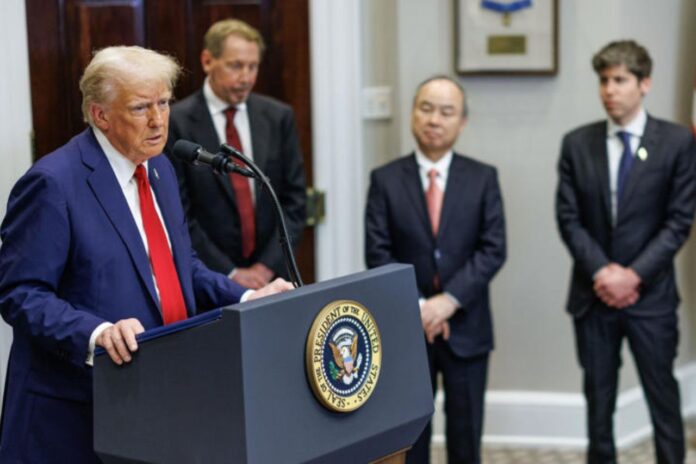The world is on the brink of something huge, and no, it’s not the latest TikTok trend. It’s artificial intelligence (AI), and it’s about to reshape everything we know, from jobs to power grids. And at the center of this transformation? The Stargate Project, a massive $500 billion investment in AI infrastructure happening right now.
But what does that mean for us?
AI giants like OpenAI, Oracle, and SoftBank are diving deep into building a new kind of intelligence that could change the way we live, work, and think. The scale of this project is mind-blowing. We’re talking about robots and AI systems that could outperform humans, creating a “workforce” of machines that could think and reason better than us.
Here’s where it gets interesting – and a bit unsettling. Some experts believe we’re on the edge of creating “superintelligent” machines, with the power to disrupt industries, economies, and even our daily lives. And with $500 billion on the line, these companies are betting big on AI’s potential to make everything smarter, faster, and more efficient.
But are we ready for this? Will this lead to a world where AI controls everything, or will it bring us closer to a utopia of endless possibilities? Or could things go horribly wrong?
We’ve been building bigger and better AI models for years, and now, as the size of these models starts to plateau, new strategies are emerging to push the boundaries even further. The race isn’t just about making AI smarter, it’s about making it work smarter too. That could mean huge leaps in AI capabilities, like machines that learn on the fly and think faster than ever.
So, what could this new AI world look like? Let’s break it down into a few possibilities:
- The Slow Burn – AI improves for a while, but eventually, it hits a ceiling. We get smarter systems, but not superintelligent ones. We end up with machines that can handle certain tasks but still need human intervention. In this world, AI will be a helpful tool, but not a game-changer.
- The Job Shuffle – As AI takes over routine tasks, workers will have to adapt. Some jobs will disappear, but new ones will pop up in areas where humans still reign supreme. Think less coding, more gardening. The future might not be all about tech jobs – it could be about hands-on, physical work that robots can’t easily replace.
- The Power Play – As AI grows, so does the demand for power. Imagine building massive data centers just to keep AI running smoothly. The world’s energy demands will surge, and how we manage that power will be crucial. It’s not just about having the right tech – it’s about making sure we have the resources to back it up.
As these AI systems evolve, so will the structures that keep us organized. The way we work, collaborate, and even govern could change dramatically. Businesses and governments might need to rethink everything, from how they manage teams to how they handle data.
But the big question is: Will these AI systems align with our values and interests? If they do, the possibilities are exciting – we could live in a world of prosperity, efficiency, and innovation. But if things go wrong, we might find ourselves facing a future we can’t control.
The time to think about this is now. We need to prepare for a world where AI is everywhere, from our homes to our workplaces. It’s not about whether we can stop it – it’s about how we shape it to benefit humanity.
As we move forward, let’s make sure we have a plan for what comes next. After all, the future is coming fast, and we don’t want to be left behind.





